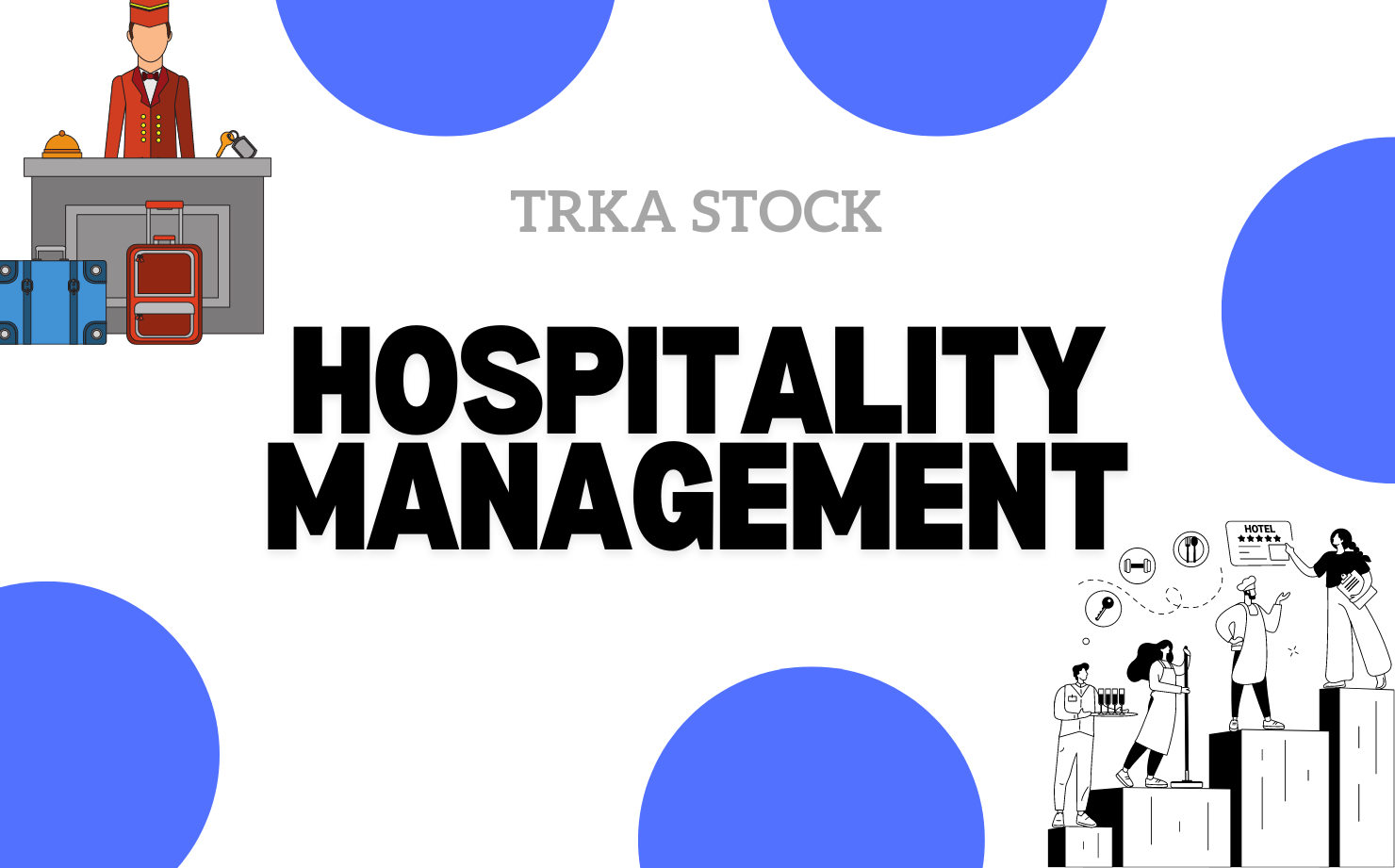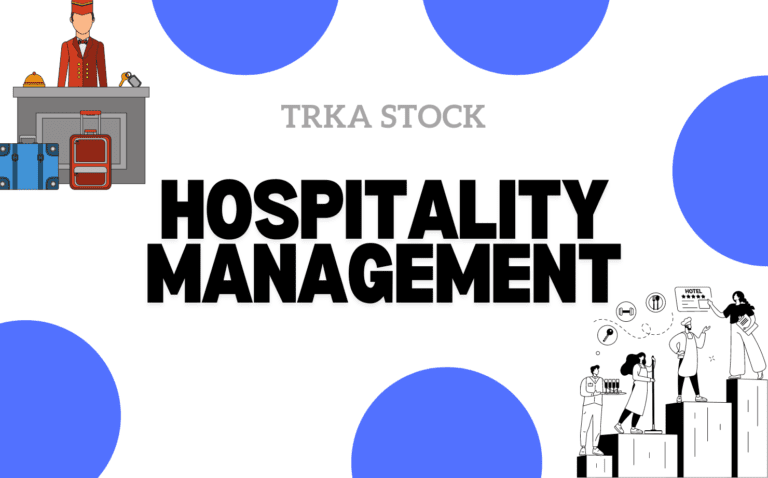Summary
Hospitality Management: The article highlights how advanced ERP software streamlines hospitality management by enhancing operational efficiency, customer satisfaction, and data-driven decision-making. Key features include AI, automation, scalability, and security, ensuring that hospitality businesses remain competitive, adaptable, and secure in an evolving industry landscape.
Modern Solutions for Streamlining Hospitality Management
Key Takeaways
- Explore the benefits of integrating advanced ERP software in hospitality management.
- Discover efficient ways to enhance customer satisfaction and operational workflow.
- Understand the significance of data-driven decisions in modern hospitality.

The Shift Towards Digital Transformation in Hospitality
The hospitality industry is rapidly evolving, with digital transformation at the forefront of this change. One of the most significant advancements for hotels, resorts, and other accommodations has been the adoption of robust ERP systems. These systems facilitate streamlined operations and improved customer experiences. As an illustration, incorporating https://arcticit.com/products/tribal-applications/hospitality-erp-software/ for the hospitality sector ensures that businesses remain competitive and responsive to market demands.
Furthermore, the shift towards digital solutions isn’t just a trend—it’s a necessity. According to industry experts, utilizing cutting-edge technology is imperative for maintaining a seamless and efficient hospitality operation in today’s fast-paced environment. Through the implementation of these sophisticated solutions, hospitality enterprises may optimize their workflows, elevate the quality of service provided to guests, and ultimately boost their competitiveness within a crowded market.
| Modern Solutions for Streamlining Hospitality Management | Details |
|---|---|
| Digital Transformation | The shift towards robust ERP systems is crucial for staying competitive. |
| Customer Experience Enhancement | Use ERP software to personalize guest services, leading to higher satisfaction. |
| Operational Efficiency | Streamline processes like inventory management and staff scheduling to reduce costs. |
| Data-Driven Decisions | Leverage real-time data from ERP systems for informed decision-making. |
| AI and Automation | Implement AI for tasks like predictive maintenance and customer interactions. |
| Scalability and Flexibility | Scalable ERP solutions can adapt to growing business needs. |
| Security and Compliance | Ensure data protection and compliance with industry regulations using advanced ERP security features. |
Enhancing Customer Experience with Technology
In the hotel business, client pleasure is crucial. Modern ERP software allows firms to offer customized services that improve the overall visitor experience. This includes seamless booking processes, efficient check-in/check-out procedures, and quickly addressing guest inquiries and issues. Such features ensure a stress-free stay for visitors, leading to higher satisfaction rates.
Using these technologies also enables hospitality companies to collect useful information about visitor preferences and habits, which helps them provide customized experiences that can greatly increase client loyalty and pleasure. Personalized touches, such as customized room settings or special offers based on guest history, can turn a regular stay into a memorable experience, fostering repeat business.
Optimizing Operational Efficiency
For hospitality operations to be profitable and sustainable, operational efficiency is essential. Innovative ERP solutions help streamline various functions such as inventory management, staff scheduling, and financial reporting. Managers may make well-informed decisions with these tools, which can lower expenses and enhance service quality. For example, automated systems can ensure that rooms are cleaned promptly and maintenance issues are addressed swiftly, leading to smoother operations.
For example, real-time stock level tracking using automated inventory management systems guarantees that resources are used as efficiently as possible and waste is kept to a minimum. This level of efficiency directly translates to cost savings and better resource allocation. Moreover, streamlined staff scheduling can help manage labor costs effectively while ensuring that there is always sufficient staff to meet guest demands, enhancing the overall service quality.
Data-Driven Decision Making
Access to real-time data is a game-changer for hospitality management. ERP systems provide detailed insights and analytics that help managers understand trends, monitor performance, and adjust strategies accordingly. This data-driven strategy increases profitability while also improving operational efficiency. Hoteliers can track various metrics, such as occupancy rates, guest preferences, and revenue patterns, to make informed business decisions.
By analyzing data on guest trends, occupancy rates, and revenue patterns, managers can forecast demand more accurately, optimize pricing strategies, and make other strategic decisions that positively impact the bottom line. For example, dynamic pricing models driven by real-time data can maximize revenue during peak seasons while ensuring high occupancy rates.
The Role of AI and Automation
Artificial Intelligence (AI) and automation are increasingly integrated into ERP systems to further enhance their functionality. These technologies can handle repetitive tasks, predict maintenance needs, and offer personalized recommendations for guests. By incorporating AI, businesses can achieve a higher level of efficiency and customer satisfaction.
For example, AI-powered chatbots can provide instant responses to common guest inquiries, freeing up staff to focus on more complex tasks. Automation also ensures that routine processes run smoothly without requiring constant human oversight. Maintenance issues can be predicted and addressed before they become significant problems, preventing disruptions in service and ensuring that the property remains in top condition.

Scalability and Flexibility
The scalability of contemporary ERP systems is one of its main benefits. These systems are scalable, allowing for the management of one property or several, depending on the expanding requirements of an enterprise. They provide adaptable solutions to different operational complexity and market demands.
This adaptability is particularly beneficial for hospitality businesses experiencing rapid growth or seasonal fluctuations. Scalable ERP solutions ensure that businesses can efficiently manage increased workloads without compromising service quality. As the business expands, the ERP system can seamlessly accommodate new properties and higher volumes of transactions, ensuring consistent performance across the board.
Ensuring Security and Compliance
Security and compliance are critical in the hospitality industry. In order to safeguard sensitive data and guarantee adherence to industry requirements, modern ERP systems come with cutting-edge security measures. This not only safeguards the business but also builds trust with customers. With the increasing incidents of data breaches, having a secure system is crucial for maintaining a good reputation.
Data breaches in the hospitality sector can have severe consequences, including financial loss and damage to reputation. By investing in secure, compliant ERP solutions, businesses can mitigate these risks and maintain customer confidence. Additionally, these systems ensure that businesses comply with various regulations and standards, preventing potential legal issues and fines.
Conclusion
Integrating advanced ERP solutions in the hospitality sector paves the way for enhanced operational efficiency, improved customer satisfaction, and data-driven decision-making. These solutions will be essential to the industry’s continued adoption of digital transformation in order to stay competitive and satisfy guests’ changing needs. By adopting these technologies, hospitality businesses can ensure that they provide top-notch services while staying ahead of the curve.

